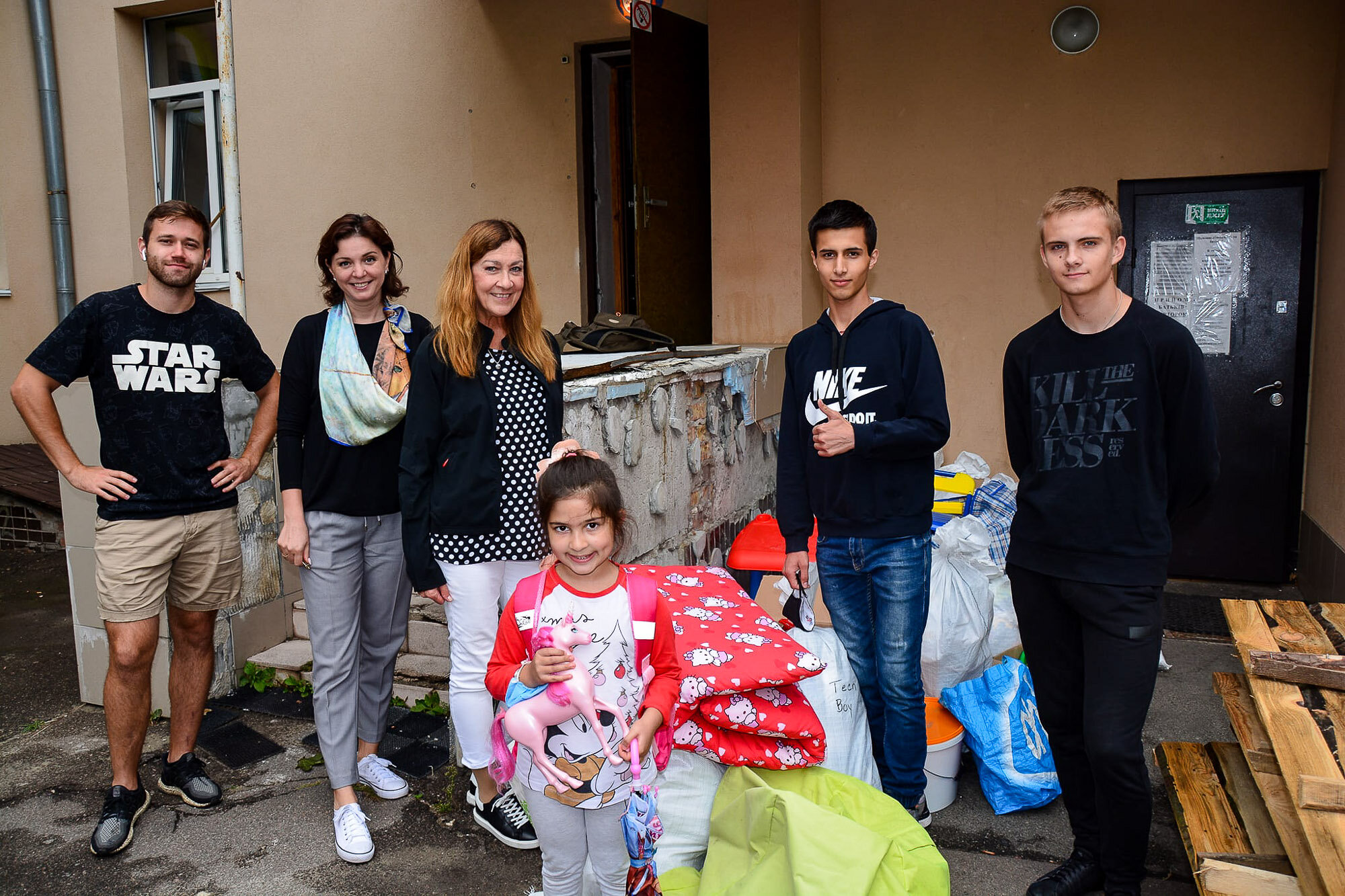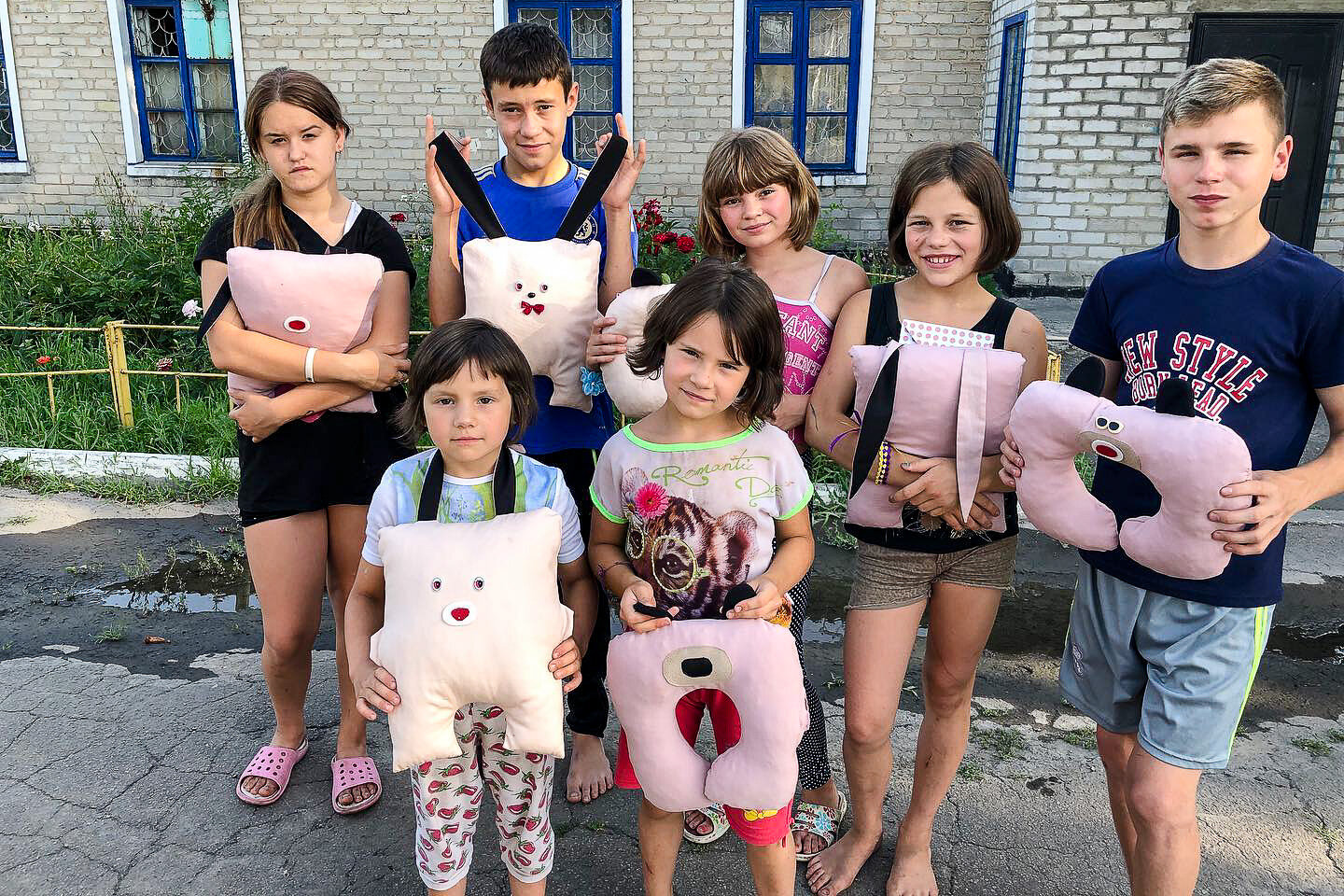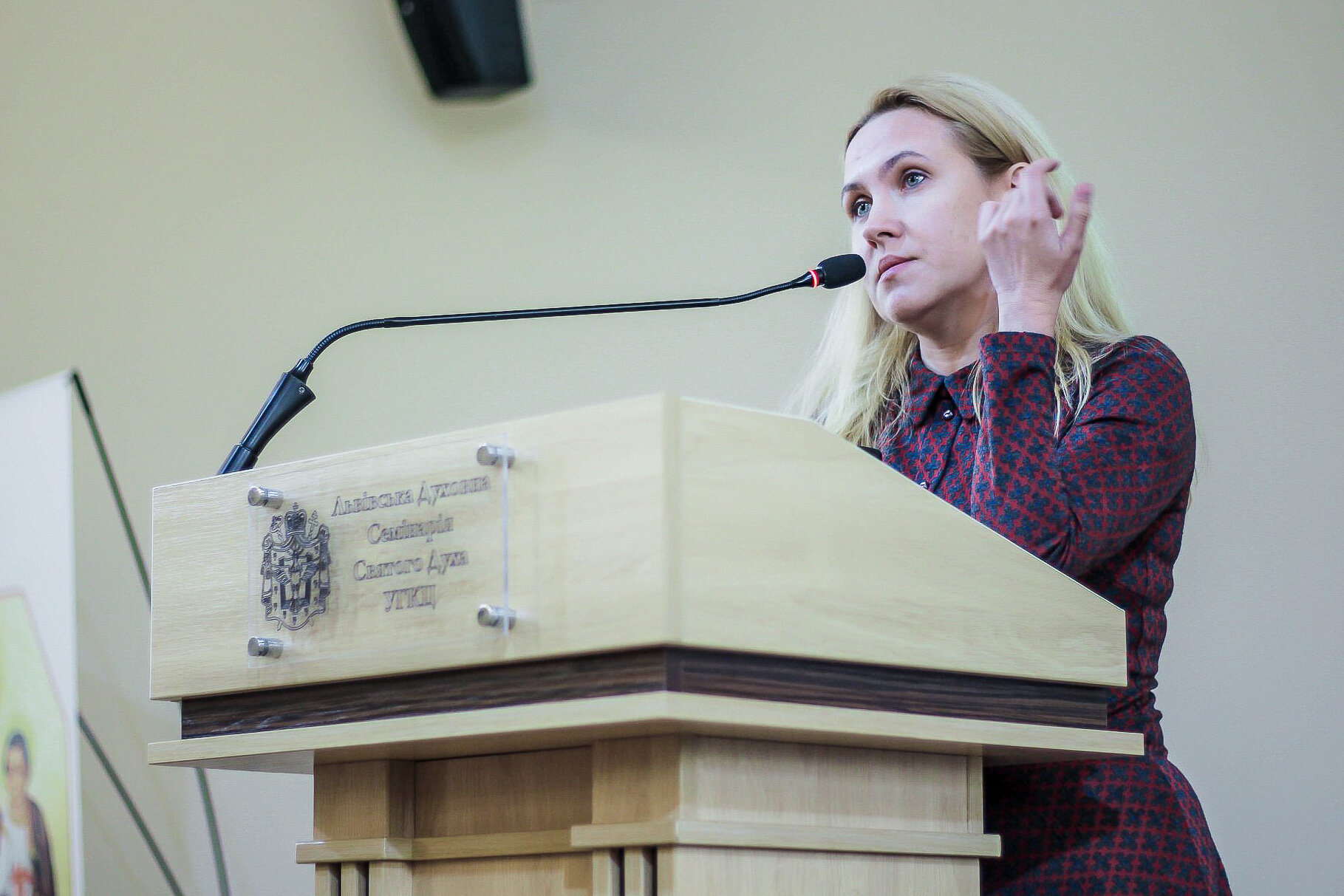Ukrainian laws demand the state to provide orphans and children without parental care with all basic needs: aliment, clothes and shelter. They must get apartments and education for free, as well as enlarged scholarships in universities and other social benefits.
But receiving funds for everything mentioned in laws is rarely the reality in Ukraine.
It’s the best-case scenario when the state buys a derelict house for an orphan in a distant village, Inna Bezsmertna, cofounder of charitable foundation Orphan Education Club, told the Kyiv Post.
In January 2018, there were almost 22,000 orphans, whose parents were dead, and 50,000 children without parental care, who couldn’t live with their biological parents because of their sickness or addiction, violent behavior or other reasons.
As a result, orphanages, post-Soviet state-run boarding schools for children at risk and foster homes taking care of these children are so overwhelmed that they can’t rely solely on the state support and are forced to ask for money and assistance from charity organizations. In addition, oftentimes state-run institutions helping children at risk are non-transparent and outdated.
Luckily, Ukrainian charity organizations have taken up to fix that. And many of them aren’t just helping orphans with money, but also teach them how to make friends and wisely spend money — the soft skills essential in adulthood yet that are almost nonexistent in orphanages. Some charities even try to save families from falling apart and ensure children aren’t left on their own.
True helpers
According to Leonid Lebediev, former aide to Ukraine’s social policy ministry, statistics show that 90% of those who leave orphanages the state state-run boarding schools for at risk children are not ready to live independently in society, 50% of those children are prone to violence and wrongdoings, and 23% may end up homeless.
Charity organization Firefly Ukraine, which was set up by George Champ and his wife Lois in 2004, supplies children with essential clothes, equipment and goods, but — most importantly — the Champs do what they can to mentally support these kids.
Currently, Firefly Ukraine assists dozens of mother and baby care centers, orphanages and foster houses in Ukraine, including in the most distant parts of the country, while the organization consists of only four constant members, including the Champs, and 10 part-time volunteers.
The couple had been doing similar work for almost 50 years, even before this charity was founded, George Champ says. They were volunteering in Latin America — including Mexico, Peru, and Ecuador — and in Eastern Europe — Hungary, former Yugoslavia and then in Ukraine.
“My wife and I, we are Christians, we believe that it’s our Christian obligation,” Champ says.
According to Champ, Ukrainian orphans aren’t socialized, and this often leads to bad consequences.
“Many girls who grow up as orphans then become pregnant, sometimes very young,” he says. “After that they apply to mother and baby centers which don’t have a budget even for diapers.”
Firefly Ukraine helps those centers to cover the cost of baby beds, baby strollers, clothes and other things for child care. As of now, the organization supports such centers in Fastiv, Kaniv, Chernihiv and Vinnytsia. They’ve been helping these centers for about seven years.

Firefly Ukraine volunteers pose for a picture as they bring clothes, shoes, kids’ furniture and toys to one of the orphanages in Ukraine. (Firefly Charity Project Ukraine/Facebook)
Besides, Firefly Ukraine helps centers for abandoned children in Uman, Pereyaslav, and the Troieshchyna district in Kyiv; it also helps foster children in Rivne and Smila. The organization buys for children computers, equipment, clothes and food.
For the orphanage in Khotiv, which Firefly Ukraine has been assisting for about nine years, volunteers buy clothes and help raise money for children to go to summer camps.
The foundation raises money from individuals and organizations like International Women’s Club of Kyiv, Pechersk International School and others.
Mentorship needed
The main project of the charitable foundation Father’s Care (Batkivska Turbota) is social rehabilitation center Ark (Kovcheh) that helps children in dire straits. About 25 children without parental care and orphans live in the center.
If it’s possible, the center tries to keep a family from falling apart. If not, it helps to accommodate these children to foster houses or family-type homes.
Working with children, the center follows a methodology called Trust-Based Relational Intervention (TBRI), developed by Karyn Purvis Institute of Child Development for children with traumatic experience. It includes connecting, empowering, and correcting principles, which means that a caregiver builds close emotional ties with a child, then satisfies the child’s emotional needs, and corrects the behavior of the child.
While children live in the center, specialists pay attention to who among the staff they are more connected with. Then this carer is assigned to the child.
Additionally, the center prepares children for adulthood. The Ark provides lessons of self-sustainability that teach children financial literacy and healthy habits, how to build relationships, regulate conflicts and discover themselves.
Moreover, for 10 years the center has taken part in a program of mentorship, which was developed by the project Odna Nadija (One Hope). According to it, a child can get a personal mentor. In 2016 the government passed a law that supported such mentorship for children.
A mentor is an adult who has successfully completed a training course on social adaptation for children and preparation of children for independent life.
“It’s like a friend who can support, help in communication, advice on choosing a future profession,” says Zhanna Zubko, director of Ark. As of now, the children have five mentors, and soon this number will increase to nine.
Zubko adds that teenagers especially need help since they tend to take it harder in regards to being removed from their social structures and friends.
“We encourage them to continue to communicate with their friends online, and even invite them to the center for events,” Zubko says.
The next project of the charitable foundation is a small home where children can live in conditions resembling a family. The children will be able to take part in cooking, basic financial management and other regular errands. This house belongs to the foundation and is located in Pushcha Vodytsia, a resort district in Kyiv, but it needs repair for which Ark is seeking funds.
Orphan Education Club
Charitable foundation Orphan Education Club has existed since 1995 under another name, Source of Life (Dzherelo Zhyttya), but two years ago, it got a new name.
“We decided to apply for grants, and decided that the name of the foundation should (directly) represent to what we do,” says Inna Bezsmertna, cofounder of Orphan Education Club.
Until 2018, they would give orphans career guidance, socialization and self-sustainability lessons. Besides, they held a camp where they taught children financial literacy. Orphans could collect points and then earn them in “shops.” This way they learned how to form their consumer basket.
In 2019, the Orphan Education Club won a grant on hackathon Hack for Locals which was organized by the United Nations Recovery and Peacebuilding Programme, with the club’s orphans project called Handcrafts by Orphans. As part of the project, the club invited craftspeople to work with orphans on handicrafts.
The organization launched a Telegram channel teaching orphans to make decorative objects with their hands such as toys, envelopes and paintings. Then the club sells the handicrafts made by orphans.
If a handicraft is sold, the money is set aside for the child who made it and then transferred to a newly created bank account for the orphan once they graduate. A child might make Hr 1,000 but the main goal is to teach them entrepreneurship, according to Bezsmertna. In this way, the Orphan Education Club helps 220 children in Donetsk, Luhansk and Kirovohradsk oblasts.

Сhildren who live at children’s center Otchiy Dom (Father’s Home) in Pokrovsk, Donetsk Oblast, pose for a picture with handicrafts that they made themselves when volunteers from charity Orphan Education Club visited them. The charity sells such handicrafts and will transfer the money to orphans once they come of age. (Orphan Education Club/Facebook)
“The goal is to change children’s thinking so that they become little entrepreneurs. It doesn’t matter how much they earn,” Bezsmertna says. “The main thing is to develop a child’s thinking that after leaving an (orphanage or state boarding school), he/she shouldn’t steal or work as a prostitute.”
Additionally, the foundation works in cooperation with Griffon Socks. The company released the socks with the patterns of the orphans’ paintings and now transfers the foundation Hr 30 ($1) for every sold box of socks.
How to help children
Volunteers should build long-term relations with orphans and children without parental care. Short-term visits don’t make sense, says Daria Kasyanova, national program development director at charitable foundation SOS Children Villages Ukraine, who’s also the head of the board at the Ukrainian Child Rights Network.
“Any child who is in an (orphanage or state-run boarding school) is waiting for someone to come for (her/him). The child sees a potential mother or father in every volunteer,” Kasyanova says.

Daria Kasyanova works as the national program development director at charitable foundation SOS Children Villages Ukraine. She is also the head of the Ukrainian Child Rights Network. She thinks volunteers should build long-term relations with orphans and children without parental care, give them attention — not just s money and stuff. (Darya Kasyanova/Facebook)
Long-term personal relationships with adults are important for a child. That’s why since 2017 the government has introduced a deinstitutionalization reform, according to which, the number of state orphanages will decrease and children will dwell in institutions where the conditions are close to the ones of a real family.
Many countries have gone through a similar reform: the United Kingdom, Poland, Czech Republic, Austria, Moldova. However, in Ukraine, some workers oppose the reform, since it may cause mass lay-offs.
“The (state system) resists, especially ours, the Soviet one, where people have worked for (decades),” Kasyanova says.
